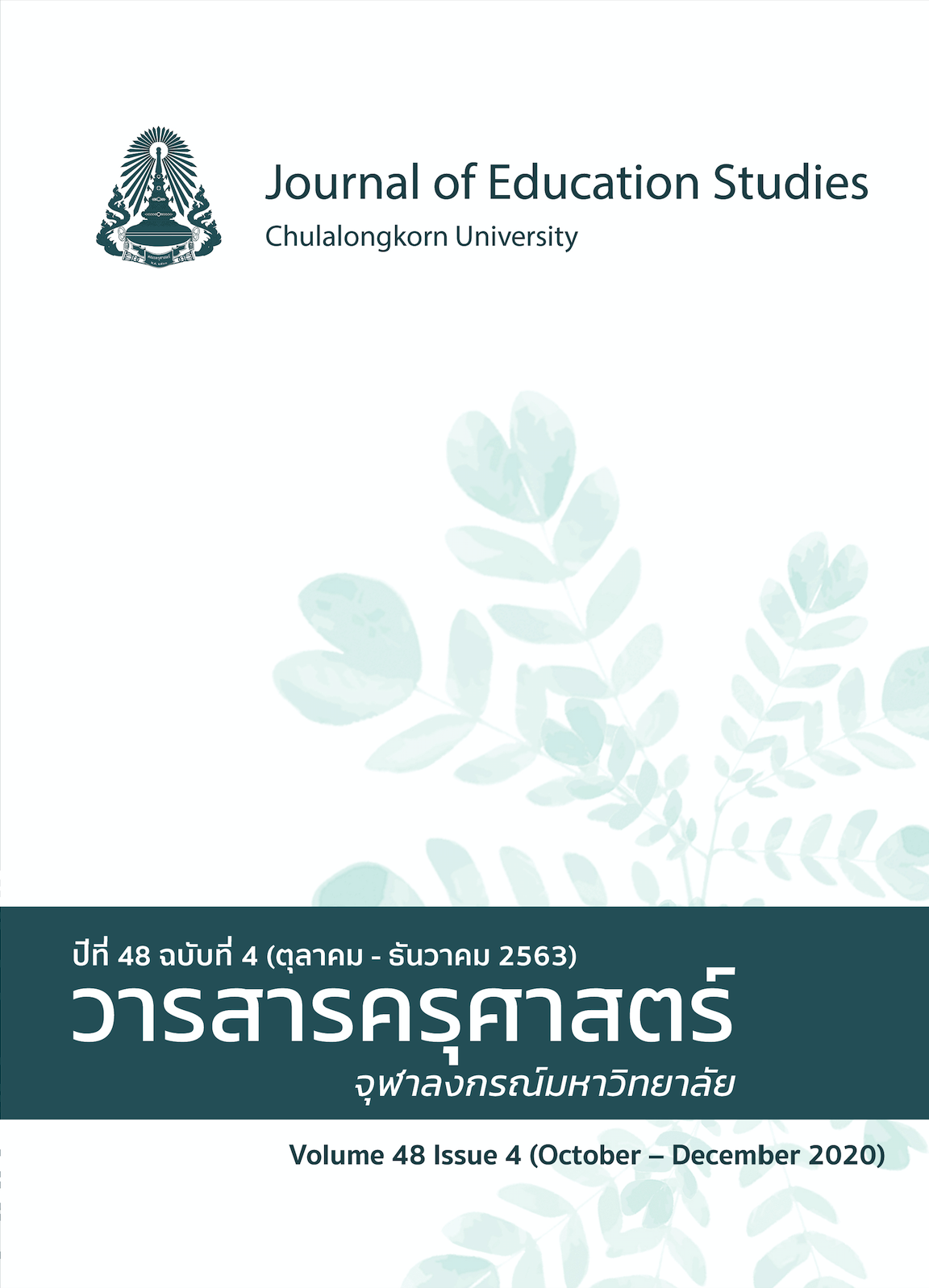Virtual Community Learning Center Based on the Philosophy of Sufficiency Economy with Case Based Learning to Enhance Problem Solving Ability of Undergraduate Students
Keywords:
virtual community learning center, sufficiency economy, case study, problem solving abilityAbstract
The objectives of this research were to: 1) Study the needs of students, agriculture teaching specialists, media and educational technology experts regarding their problems and needs for learning and teaching agriculture; and 2) Design a Virtual Community Learning Centre (VCLC) model under the philosophy of a sufficiency economy. The samples consisted of 400 undergraduate students studying at agriculture institutes, and questionnaires were used to collect data. Semi-structured interviews from nine agriculture specialists, and five lecturers in teaching media and technology were also used as research tools. The descriptive statistics, including frequency, percentage and mean, were used to analyse the data. The results indicated problems which impeded student learning which were primarily due to inadequate learning media (55.8%). The most basic of proficiencies that students needed to develop were knowledge of agriculture and problem-solving skills, at 74.3% and 68.8%, respectively. The most significant teaching and learning obstacle experienced by most lecturers was identified as an excessive workload which adversely limited their time and opportunity for self-development. The VCLC model evaluated from the students’ questionnaires, together with the previously-described semi-structured interviews to create the model, consisted of five key elements, namely: People, technology, learning resources, activity/learning process and evaluation, while the learning activity consisted of four phases: Preparation of learners, pre-tests, learning activities and evaluation. This designed model could lead the way to the future development of learning tools and activities for the VCLC.
References
Chang, C. Y. (2008). Does problem solving = prior knowledge + reasoning skills in earth science? An exploratory study. Research in Science Education, 40, 103–116. https://doi.org/10.1007/s11165-008-9102-0
Cifuentes, L., Mercer, R., Alverez, O., & Bettati, R. (2010). An architecture for case-based learning. TechTrends, 54(6), 44–50. https://doi.org/10.1007/s11528-010-0453-9
Fongsri, P. (2011). Educational research. (8th ed.). Darnsutha press
Freiman, V., & Lirette-Pitre, N. (2008). Building a virtual learning community of problem solvers: example of CASMI community. ZDM Mathematics Education, 41, 245-256. https://doi.org/10.1007/s11858-008-0118-8
Kemp, S. (2017, 25 January). Digital in 2017: Global overview. We Are Social. https://wearesocial.com/sg/blog/2017/01/digital-in-2017-global-overview
Khan, B.H. (2005). Managing e-learning: design, delivery, implementation, and evaluation. Information Science Publishing.
Khlaisang, J., & Koraneekit, P. (2016). Design of web-based learning: a framework for integrating of blended learning, e-learning and online learning into your class. Chulalongkorn University Press.
Khlaisang, J., & Songkram, N. (2013). E-learning system to enhance cognitive skills for learners in higher education: A review of possibly open education. International Journal of the Computer, the Internet and Management, 21(1), 17–23.
Khlaisang, J., & Songkram, N. (2017). Designing a virtual learning environment system for teaching twenty-first century skills to higher education students in ASEAN. Technology, Knowledge and Learning, 24, 41–63. https://doi.org/10.1007/s10758-017-9310-7
Khlibtong, J. (2011). Learning community: Teaching materials unit 1-7 information and communication media in agricultural extension. Sukhothai Thammathirat Open University.
Laohajaratsang, T. (2009). Classroom of Tomorrow. http://thanompo.edu.cmu.ac.th/load/journal/50-51/Classroom%20of%20Tomorrow.pdf
Ministry of Education. (2017). The National education plan B.E.2017 – 2036. Office of the Education Council.
Office of the National Economic and Social Development Board. (2016). The 12th National economic and social development plan (2017-2021). Office of the Prime Minister.
Office of the Secretary of the Council of Education. (2017). National education plan (2017 – 2036). Ministry of Education.
Palloff, R.M., & Pratt, K. (2007). Building online learning communities. (2nd ed.). Jossey-Bass.
Sharma, R.C., Sanjaya, M., & Pulist S.K. (2005). Education in the digital world. Viva.
Sriarunrasmee, J., Suwannatthachote, P., & Dachakupt, P. (2015). Virtual field trips with inquiry learning and critical thinking process: A learning model to enhance students’ science learning outcomes. Procedia - Social and Behavioral Sciences, 197, 1721–1726. https://doi.org/10.1016/j.sbspro.2015.07.226
Statista (2017). Thailand: social network penetration Q4 2016. https://www.statista.com/statistics/284483/thailand-social-network-penetration
The Chaipattana Foundation. (2007). Sufficiency economy and the new theory. Amarin Printing & Publishing.




